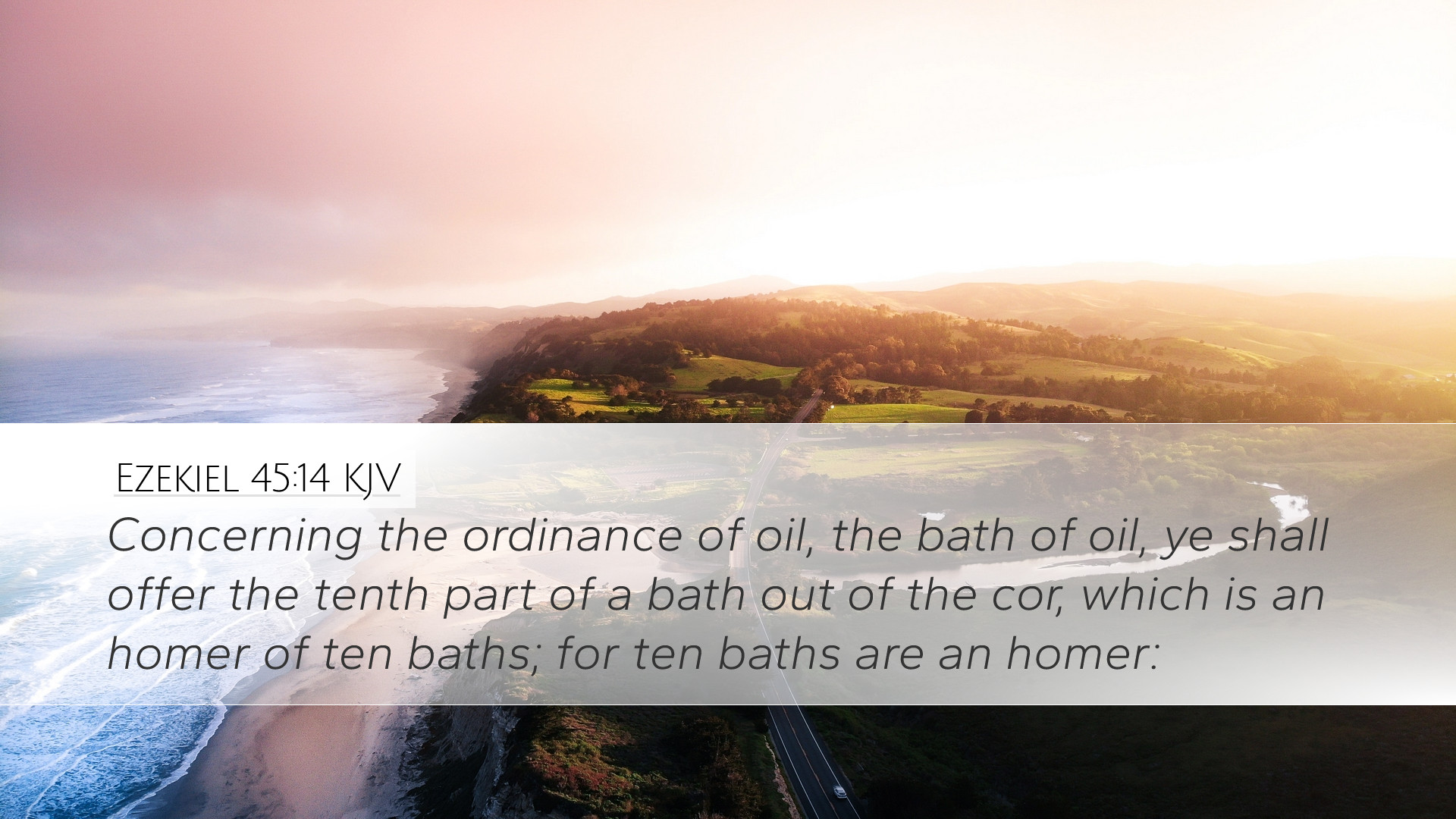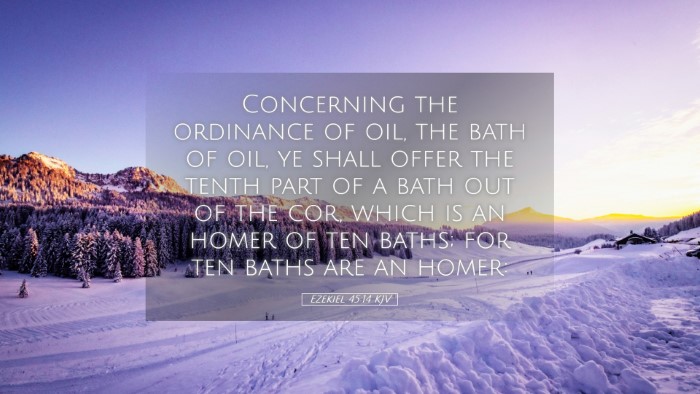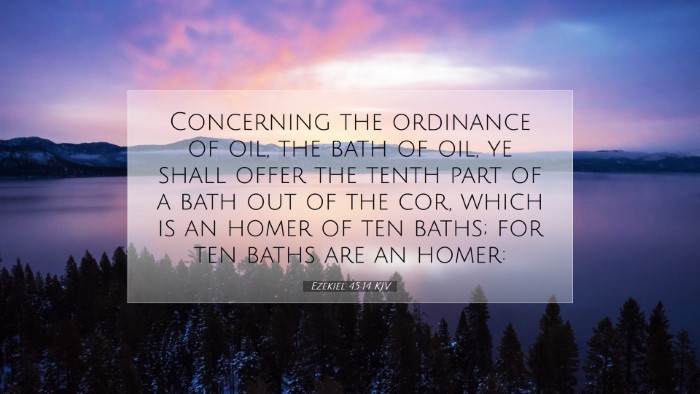Bible Commentary on Ezekiel 45:14
Ezekiel 45:14: "And for the ordinance of oil, a bath of oil, of the tenth part of an ephah; ye shall give the tenth part of a bath out of the cord of the oil." (KJV)
Contextual Analysis
This verse is part of a larger passage in Ezekiel that outlines the regulations regarding offerings and the division of land in the restored temple. The prophet Ezekiel, during the Babylonian exile, communicates God’s plans for the future restoration of Israel, focusing on worship, governance, and the priesthood. Here, specific measurements and portions for offerings are given, emphasizing the meticulous nature of worship in the reestablished community.
The Significance of Oil
Oil in biblical texts often symbolizes various aspects of the divine presence and God's blessing:
- Anointing: Oil was used for anointing kings and priests (e.g., 1 Samuel 16:13), signifying God's selection and empowerment.
- Illumination: Oil was used in lamps to provide light (Exodus 27:20), representing God's guidance and truth.
- Healing: Oil was associated with healing, as seen in James 5:14 where it is used in prayer for the sick.
The ordinance in Ezekiel highlights the essential nature of oil in worship practices and reinforces the holiness and separateness of the offerings to God.
Interpretation of the Measurements
The passage mentions the "tenth part of a bath," indicating a precise measurement concerning the offerings. This meticulous detail serves several purposes:
- Divine Order: The exact specification highlights God's desire for order and precision in worship. It illustrates how God is not a God of confusion but of specificity, aligning with 1 Corinthians 14:33.
- Proportional Giving: The notion of a "tenth" suggests a principle of proportionality in offerings, pointing to the broader biblical concept of stewardship and generosity.
- Symbolic Representation: Each part of the measurement could symbolize a larger theological principle, aiding the worshipper in understanding the value of their offering.
Insights from Public Domain Commentators
Matthew Henry: Henry emphasizes the role of the oil as not merely a physical substance but as representative of the Holy Spirit's work in the lives of the faithful. He draws parallels between the oil’s usage in various sacrifices and the impartation of divine grace for the believers who seek to serve God.
Albert Barnes: Barnes reflects on the practical implications of these offerings, suggesting that such detailed instructions were intended to cultivate a spirit of discipline and reverence among the people. For him, this passage serves to remind God's people that their worship must be both heartfelt and aligned with divine intention.
Adam Clarke: Clarke approaches the text with a focus on the meaning derived from the proportions given. He notes that, throughout the Bible, the spirit behind the offering matters as much as its physical aspect. He adds that in our contemporary understanding, this translates into recognizing the importance of purity and intent in our acts of worship, not merely going through the motions.
Theological Reflections
This passage, although specific to the culture and context of ancient Israel, prompts vital theological reflection:
- Worship as a Whole Life Offering: The call for specific offerings implicates every aspect of life, encouraging a holistic view of worship that transcends mere ritual.
- God's Desire for Relationship: The stipulations demonstrate God's ongoing engagement with His people. He desires a relationship characterized by faithful response to His directions.
- The Promise of Restoration: This entire vision of the temple and offerings also points to God’s ultimate plan for restoration - a theme that echoes throughout the Scriptures and culminates in the New Testament with Christ.
Practical Applications for Today
Pastors and Christian leaders might draw upon this verse in various ways:
- Encouraging Disciplined Worship: Use the specificity of the offerings to teach congregants about the beauty of engaging in disciplined, thoughtful worship practices.
- The Importance of Intent: Encourage the faithful that their hearts and intentions matter as much as the offerings they bring, fostering an environment where giving is both meaningful and intentional.
- Fostering Stewardship: Help congregants understand the importance of stewardship, relating the biblical practice of proportional giving to modern concepts of generosity and resource management.
Conclusion
Ezekiel 45:14 encapsulates rich theological and practical lessons regarding worship, offerings, and the nature of God’s engagement with His people. As pastors, students, and theologians delve into the details of this verse, they uncover applications that resonate with contemporary understandings of faith, stewardship, and communal worship.


